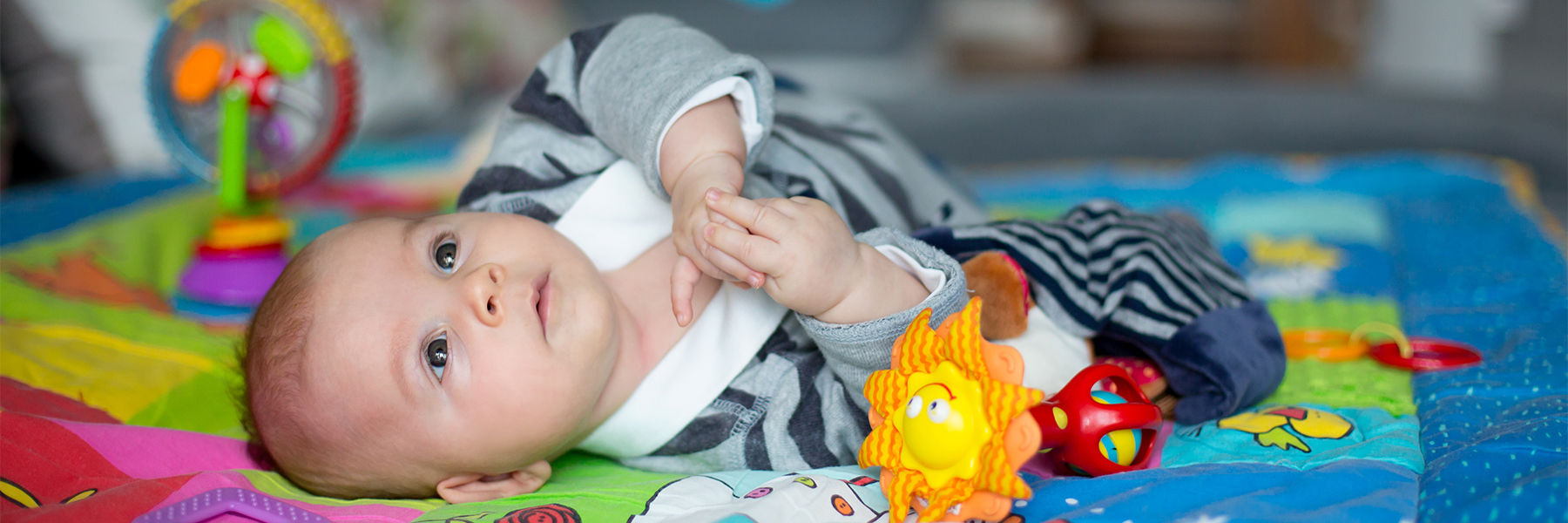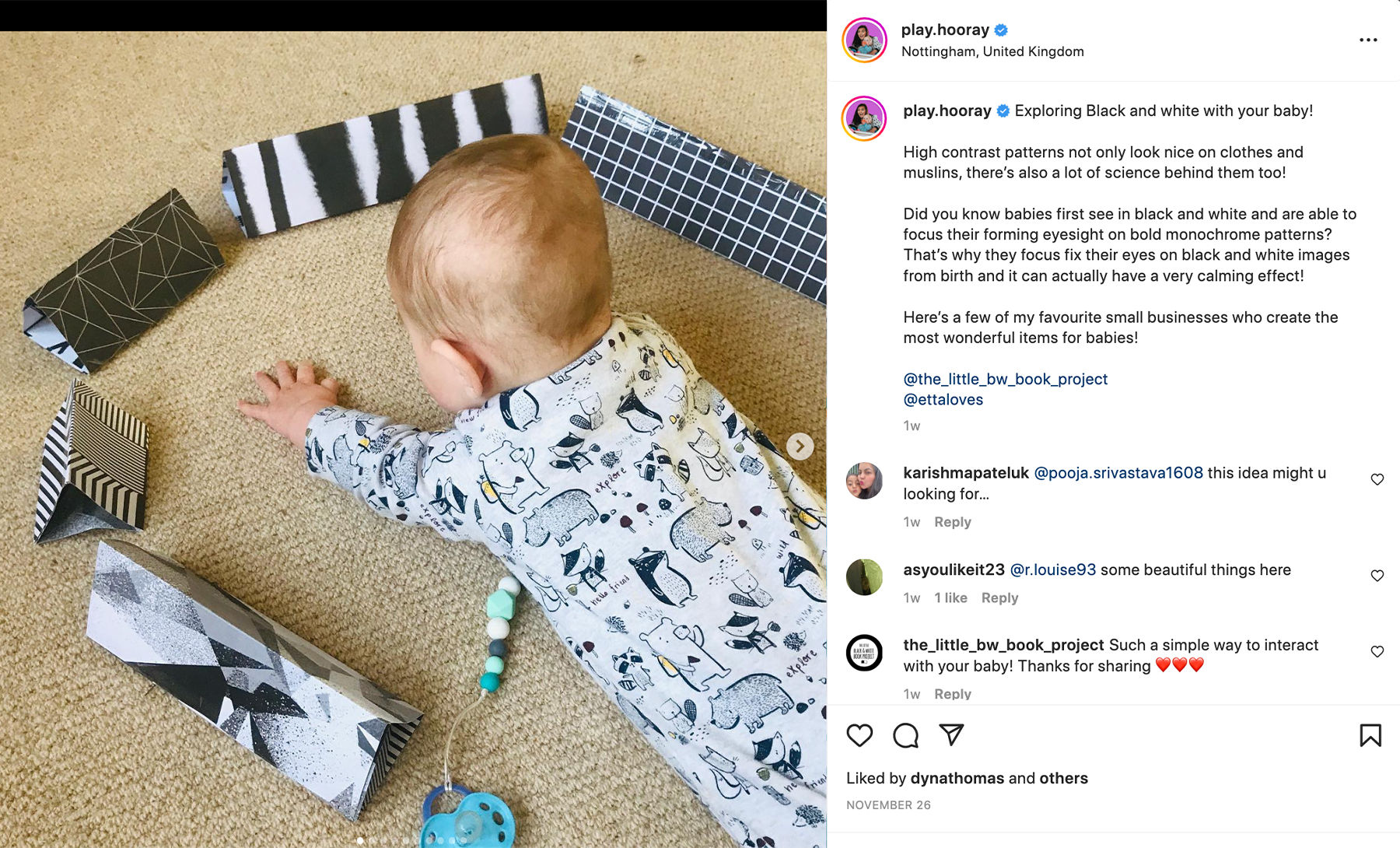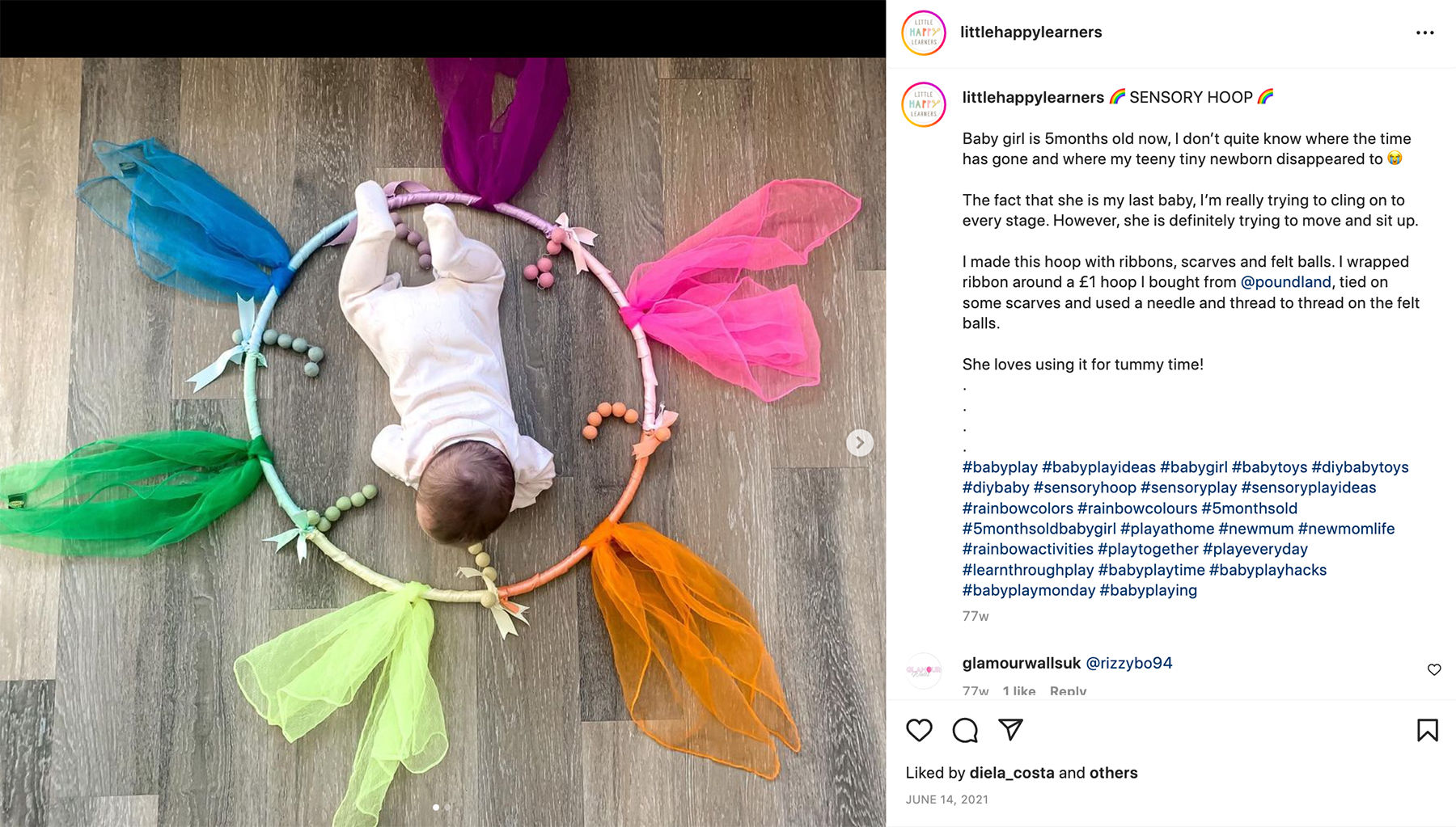Use arrow keys to navigate through the menu items. Use Tab key to navigate through the menu banners.
First Play Ideas

Ideas for playing with your baby at 3 to 6 months
This age signals the beginning of proper 'playtime' – and the start of a new adventure for you, too!
From three to six months your baby embarks on a whole new phase of development.
‘You’ll see your baby becoming more and more interested in the world around them, and you can help them explore through play,’ says early years expert Claire Russell (@play.hooray).
‘Around this time your baby may be able to bat at dangling objects and hold and shake a toy. They’ll also start tracking a moving object with their eyes. This leads to them reaching and grasping toys for themselves, usually by six months.’
‘Your baby will also become more mobile – going from rolling over to sitting up with support.’
‘Babies of this age love to explore by putting objects into their mouths, but make sure you watch them like a hawk!’

Easy play ideas
Not sure how to entertain your tiny tot? Get inspired with our ideas, which also help their development.
1. Bubble fun
Minimal effort, maximum fun – we're yet to find a tot who doesn't adore bubbles. Calming yet interactive, they're one of the simplest boredom-busters for babies as young as three months old. Watching the bubbles float by will help with eye tracking, while popping the bubbles with your finger will encourage them to reach out.
For entertainment on the go, pop a bottle of bubble solution in your changing bag or invest in a bubble machine for fun at home.
2. Singing sessions
Babies love hearing your voice – it's a familiar sound they've been used to since the womb – so singing to your baby is a brilliant way to bond.
Vary the volume, pace and tone by singing the verses differently to the chorus, or by doing a funny voice and actions. Nursery rhymes are always a winner and provide the repetition and gentle rhythm that babies love... but if you prefer Taylor Swift, baby’s not judging!
3. Water play
Babies love to play with water, whether it's by pouring, splashing or simply feeling it between their fingers and toes.
As they get older, they'll love messing around with washing up bowls or the paddling pool but at this age, the bath is the safest and easiest option. Hold them up or use a bath support or seat and enjoy a gently splashy playtime session.
4. Tummy time
You should try to give your baby some time on their tummy daily. It's a key way to help develop their strength, particularly in their legs and arms in preparation for when they begin to crawl. It also improves their gross motor skills (those that involve the larger muscles in the body).
Pop them on a rug or play mat rather than the hard floor, in case of any face-planting. Then pop a toy nearby for them to reach out to or watch.
5. Kick off
Simply kicking their legs and waving their arms around can provide entertainment and help coordination. To encourage them, and add a sensory element, try a play gym with different toys and textures to explore.
They'll love seeing the varying colours, watching the movement or listening to the sound.
6. Nature adventure
As wonderful as it is seeing your little one learn new skills, playtime with a young baby can be repetitive. That's why we're big fans of taking your baby out into nature; going for a walk in the park gives you both a break.
From the colours of the leaves, to the way the clouds move, and the sound of birds and other children playing, there are endless thrills for your baby.
The fresh air will also help with sleep, so pop your tot in the pram, put on a playlist or podcast and enjoy some chill-out time, safe in the knowledge your baby is soaking up a whole world of magic.
6. Musical marvels
Music is marvellous for developing minds! For gentle, baby-friendly tunes, choose musical toys. Babies can even experiment with making their own sounds. Rattles and toy chimes are fascinating for babies aged three to six months, teaching them cause and effect (they shake the toy, it makes a noise).
If you're on a budget, you can make your own musical instruments, too. Try putting rice in a secure plastic bottle for a DIY shaker or demonstrate banging on a saucepan with a wooden spoon.

Your baby's development checklist at 3-6 months
Early years specialist Sophie David (@littlehappylearners), shares some of the milestones you might see at this age. (Remember that all children develop differently: if you have any concerns contact your doctor or health visitor.)
-
Motor skills: Begins to roll from front to back, and back to front; holds head steady; tracks moving objects
-
Problem-solving: Uses both hands to reach and explore a range of toys and objects
-
Communication: Uses babbling to gain attention; turns their head towards sounds
-
Creativity: Enjoys playing with a variety of objects, shapes and textures
-
Independence: Brings hands and objects to the mouth
Help & Customer service
- Help Centre
- How to shop
- Product recalls
Payment Methodslist with 8 items
- Asda Group of Companies
- Modern Slavery Statement
- Electrical Waste Recycling
- Terms & Conditions
- Customer Review Policy
- Privacy Centre
- Cookie Settings
- Accessibility
© ASDA 2025